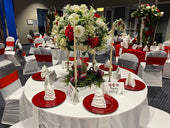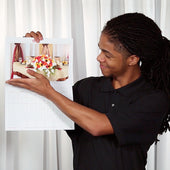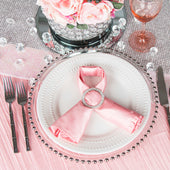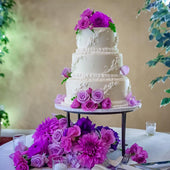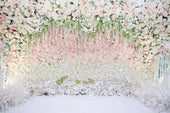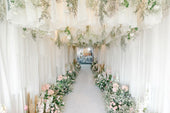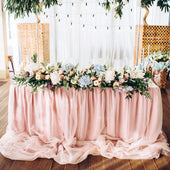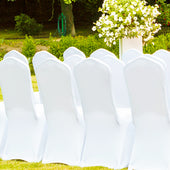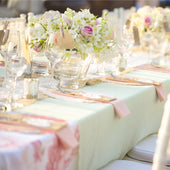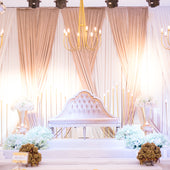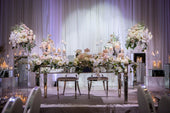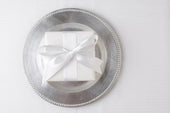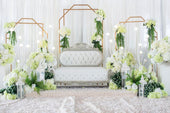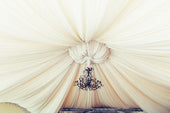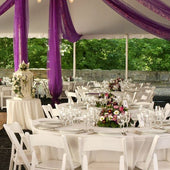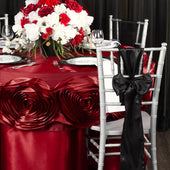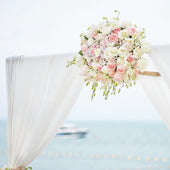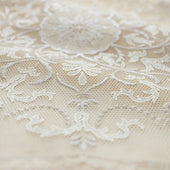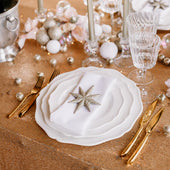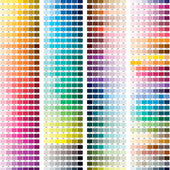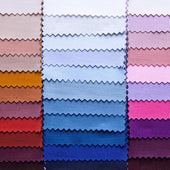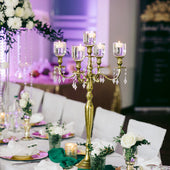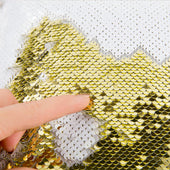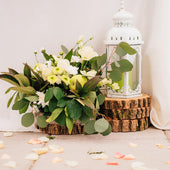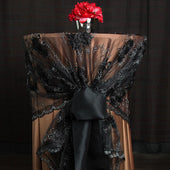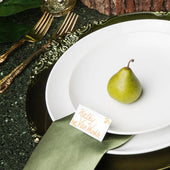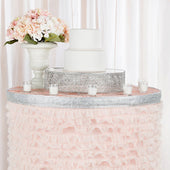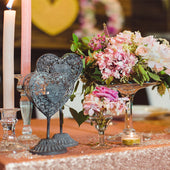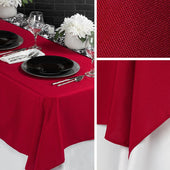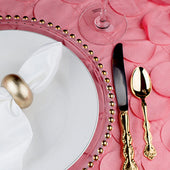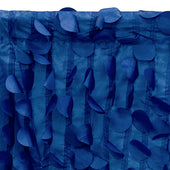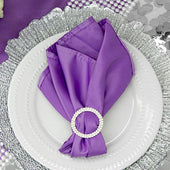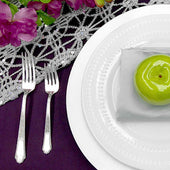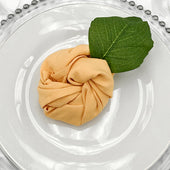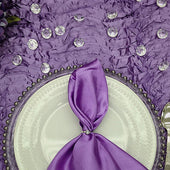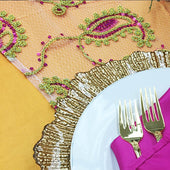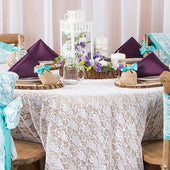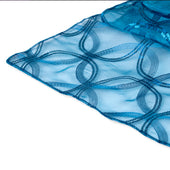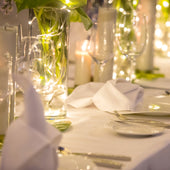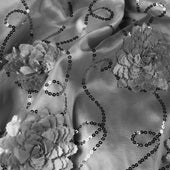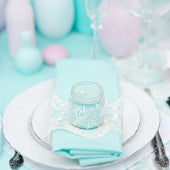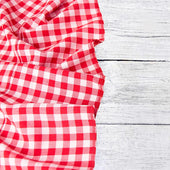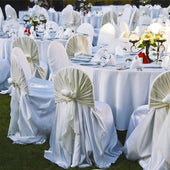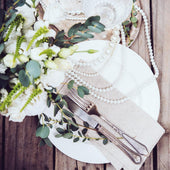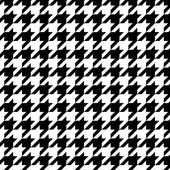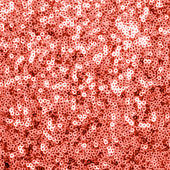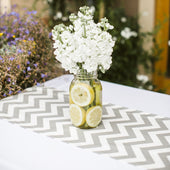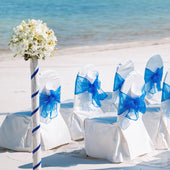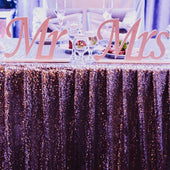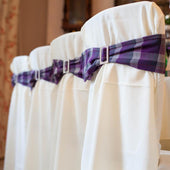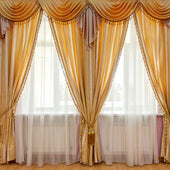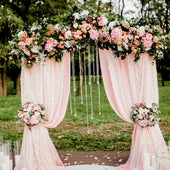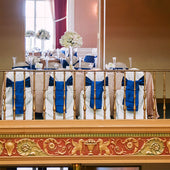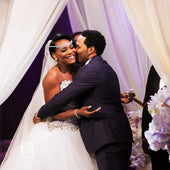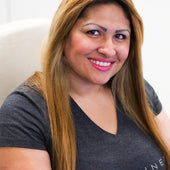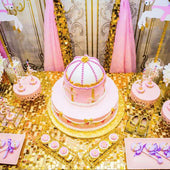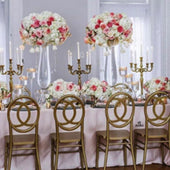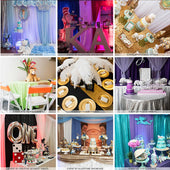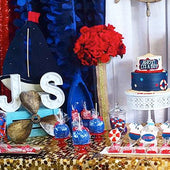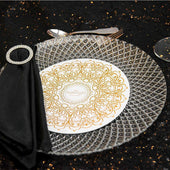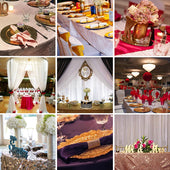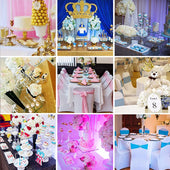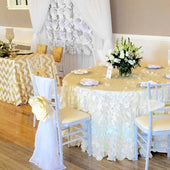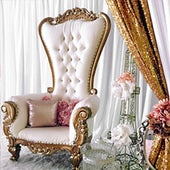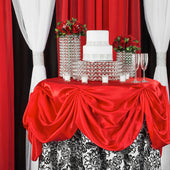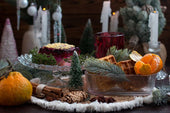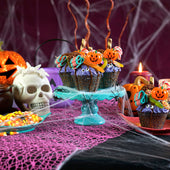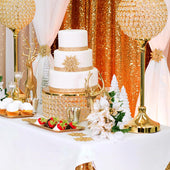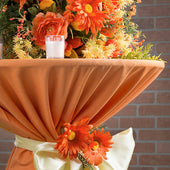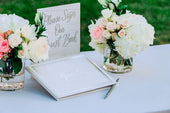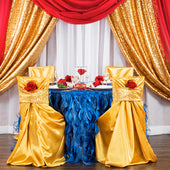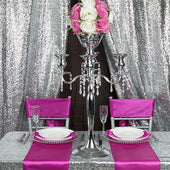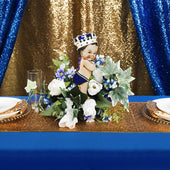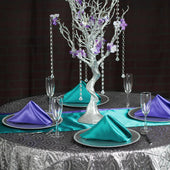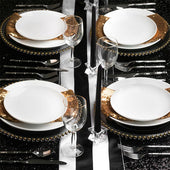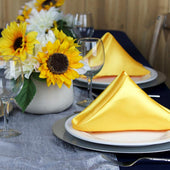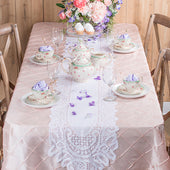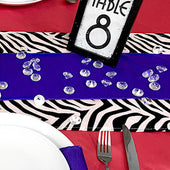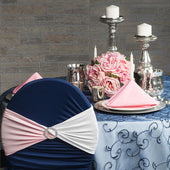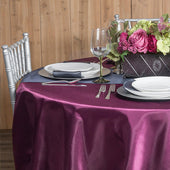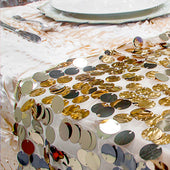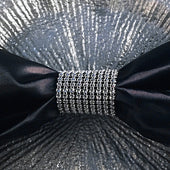A Muslim wedding is a celebration of love steeped in rich culture and tradition. Its beauty lies in the intricate details, the vibrant colors, and the deep-rooted customs that make it a truly memorable event. This ceremony is not only a union of two souls but also a merging of two families, two histories, and two sets of traditions.
Whether you're organizing a Muslim wedding or attending one, understanding the customs associated with it is a wonderful way to appreciate its significance. This guide offers insights on their rich wedding traditions, Muslim wedding decor, and some tips in organizing this cherished event.
Muslim Wedding Decor: Honoring Rich Cultural Heritage

Muslim wedding decorations should align with the cultural and religious traditions of the couple. Here are some elements that are commonly factored into Muslim wedding decor:
Henna Decor
Henna plays a significant role in Muslim weddings. Decor elements often feature intricate henna designs, and some couples even have a henna ceremony as part of their pre-wedding events.
Arabic Calligraphy
Decorations often include verses from the Quran or other religious texts in beautiful Arabic calligraphy. These can be featured on banners, table settings, or wall art.
Traditional Colors
Traditional colors for Muslim weddings are often rich and vibrant, drawing inspiration from cultural and religious significance. These colors symbolize love, prosperity, and fertility. Common traditional colors include red, gold, emerald green, and blue.
For instance, a rose gold round tablecloth can add a touch of elegance to the dining area, while green velvet tablecloths can bring in richness to the decor. These carefully chosen tablecloths not only align with the traditional color palette but also provide a sumptuous and inviting atmosphere for the celebration. These colors reflect the couple's love and also their cultural heritage and commitment to their faith.
Privacy Screens
In keeping with Islamic traditions of modesty, some couples use decorative screens or partitions to separate the genders during the ceremony.
Islamic Patterns
Islamic geometric patterns are famous for their intricate and symmetrical designs. They can be skillfully incorporated into various decor elements such as tablecloths, backdrops, or even the wedding cake.
When choosing these patterns, it's essential to consider tablecloth sizes to ensure that the designs are properly showcased and make a striking visual impact during the ceremony and reception. These patterns not only add artistic elegance but also hold cultural and spiritual significance, making them a meaningful choice for Muslim weddings.
Dates and Fruits
Dates and fruits are often part of the decor and are sometimes given as favors to symbolize sweetness and fertility.
Prayer Area
Many Muslim weddings feature a designated prayer area where guests can perform their Salah (prayer) if needed. This sacred space, adorned with elegant rugs, offer a serene retreat for moments of reflection and connection. It enhances the spiritual significance of the occasion.
Floral Arrangements
Flowers play a significant role in Muslim wedding decor, symbolizing purity, beauty, and new beginnings. Popular choices include roses, lilies, and orchids. These blossoms are used abundantly to create stunning floral arches, exquisite centerpieces, and delicate bouquets.
Modern trends have introduced innovative options such as the CV Linens flower wall which can serve as a backdrop for the wedding ceremony or reception. These floral elements infuse the wedding decor with natural beauty and fragrance, adding an enchanting atmosphere to the celebration.
Important Muslim Wedding Traditions

Muslim wedding practices and traditions are steeped in rich cultural and religious practices that vary across different regions. Here are the common Muslim traditions for their wedding:
1. Arranged Marriages: Many Muslim weddings are arranged by the families, with a focus on compatibility, shared values, and religious beliefs.
2. Mahr: The groom provides a gift or dowry, known as the Mahr, to the bride as a symbol of his commitment and financial responsibility.
3. Nikah: The Nikah is the official Islamic marriage contract, and it is the heart of the Muslim wedding ceremony. During this solemn event, the bride, groom, and two witnesses gather to sign the Nikah, outlining the terms of their marriage in accordance with Islamic law.
It's a profound moment where the couple publicly declares their commitment to each other in the presence of their loved ones and seeks the blessings of Allah for their union.
4. Walima: The Walima is a celebratory feast hosted by the groom's family after the Nikah. It is a time for family and friends to come together and bless the newlyweds.
5. Henna Ceremony: A Henna ceremony, also known as Mehndi, involves the bride and her female friends and family members applying intricate henna designs to her hands and feet. It symbolizes beauty and good luck.
6. Dua: Throughout the wedding ceremony, prayers and supplications are recited, seeking blessings and guidance for the couple's future.
7. Halal Food: Muslim weddings typically serve Halal food, which adheres to Islamic dietary laws. This ensures that the food is prepared in a permissible and ethical manner.
8. Separate Seating: In many Muslim weddings, there is separate seating for men and women during the ceremony and reception as a sign of modesty.
9. Reading of Quranic Verses: Quranic verses are often recited during the wedding ceremony to invoke blessings and guidance for the couple.
10. Exchange of Rings: Although not a traditional Islamic practice, some couples exchange rings as a symbol of their commitment to each other.
These traditions vary based on cultural backgrounds and preferences but reflect the core values of faith, family, and community that are central to Muslim weddings.
What To Wear to a Muslim Wedding?

In a traditional Muslim wedding, the bride typically wears a stunning bridal ensemble.
Muslim wedding dresses can vary widely based on cultural and regional influences. However, it's common for the bride to wear a beautifully designed gown or a traditional outfit, often in vibrant colors like red, gold, or green. She may also wear intricate jewelry, including a necklace, earrings, and bangles.
The groom, on the other hand, usually wears a tailored suit or a traditional sherwani. This attire is complemented by a head covering known as a "sehra" or a "pagri," depending on the culture.
Muslim wedding guests, especially close family members, often dress in elegant and modest attire. Women may opt for stylish Islamic dresses or modest gowns with hijabs. Men usually wear suits or traditional attire like a kurta-pajama or a sherwani. The choice of attire can also depend on the formality of the wedding, with more upscale outfits for formal ceremonies and simpler attire for casual gatherings
Moreover, family and guests may choose attire that complements the couple's traditional outfits. This coordinated effort adds a sense of harmony to the overall ambiance, which can be further enhanced by matching Muslim wedding decor. Mixing the colors and patterns from the bride and groom's attire into the decor can create a visually appealing and culturally rich atmosphere.
Shop With CV Linens
At CV Linens, we understand the importance of honoring and celebrating the beauty of Muslim weddings. Your special day deserves nothing but the best, and we're here to be your trusted partner in planning and organizing every detail.
From exquisite big Payette sequin tablecloths that add a touch of glamour to elegant gold charger plates we've got you covered. Our blogs and styling tips can also help you with delicate questions including whether your napkins should match your tablecloth.
Our extensive range of event linens is designed to meet all your Muslim wedding decor needs. We're committed to making your Muslim wedding not only beautiful but also stress-free, ensuring it's a day filled with love, tradition, and cherished memories.



























































